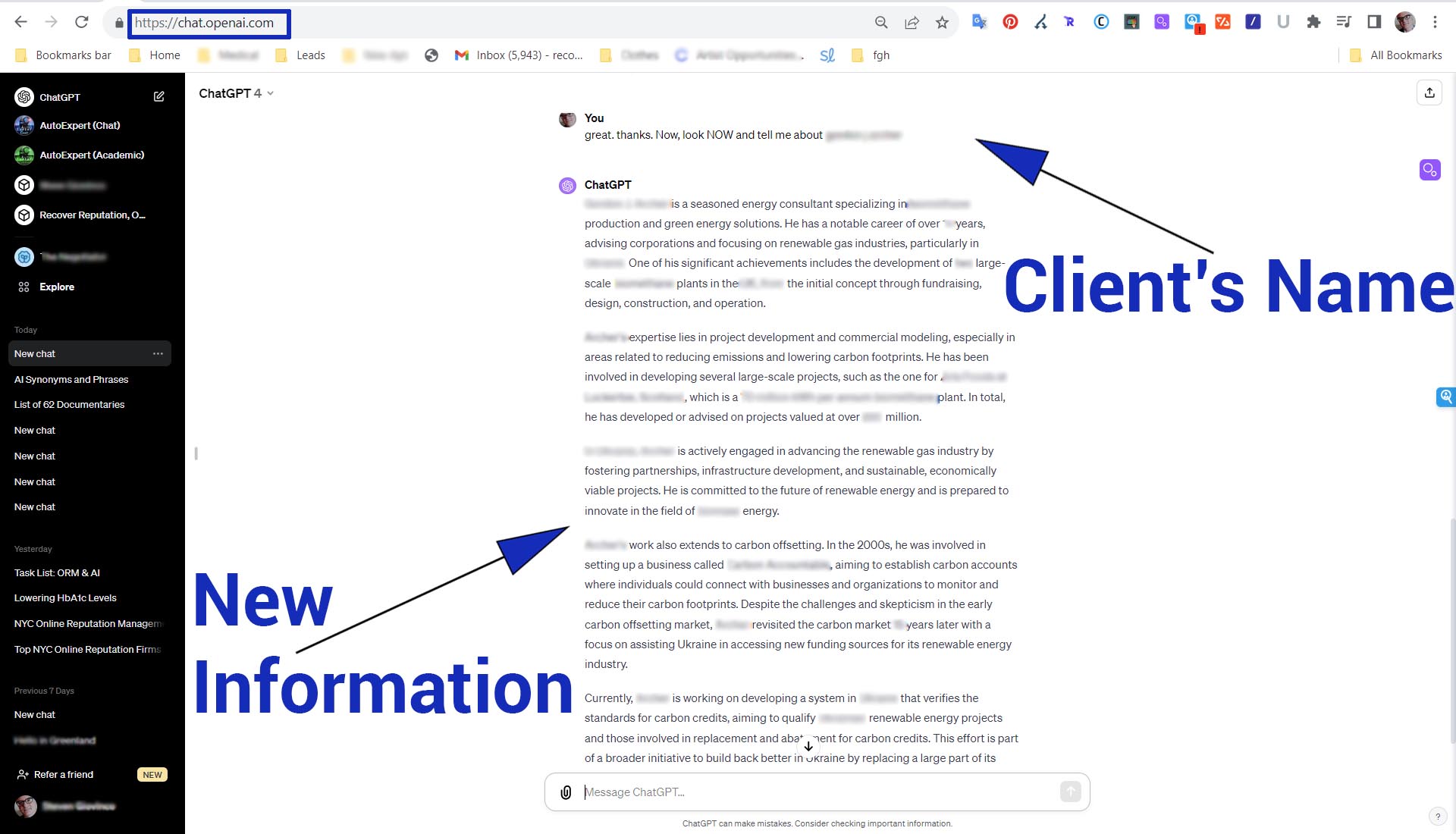Last Updated on August 10, 2023 by Steven W. Giovinco
Indeed, surprising. But what are blogs, and why are they crucial for online reputation management? Blogs generate good content that eventually pushes down negative links, builds trust by showing industry expertise and is a way to get visible online.
Here are some tips for excellent posts and four ways blogging is important for online reputation repair.
What to Write to Repair a Damaged Online Reputation
A blog is a place for brief, targeted articles online. Knowing what to write and where to post them are crucial details to get right for the repair process. Blog articles should be at least 500 words long but ideally about 1,000 words (a page or two). The topic should address a specific issue for readers or clients. For example, write about top business-related questions that often get asked, offing some of the best solutions. The idea is to generate good content that people legitimately find interesting and pertinent to them.
Include Keywords, Headings, Images
A blog should include keywords–phrases that are useful for searches, which are related to the topic–sprinkled throughout the article; headings help break the blog into easy to read sections; an image placed at the top, relating to the topic, gives a visual queue to the story; lastly, be sure to include your name or business name a few times, but avoid artificially “stuffing” unnecessarily.
Find the Right Place for the Right Blog
Post to well-trafficked platforms, such as LinkedIn or Facebook, to dedicated industry-specific blog sites such as Avvo.com for law, etc., or general sites, like Medium.com. The best place, however, is to post an article on one’s own business or personal blog because this generates website traffic, in turn pushing up positive links. Here are four reasons why to write blog articles to help repair a damaged online reputation or build a positive one.
1. Blogs Push Down Negative Links
Blogs are powerful tools in the reputation repair process because they can push down negative links. Popular and well-written pieces eventually show up on the top of Google searches, suppress damaging articles posted by competitors, disgruntled ex-clients, or employees with an ax to grind.
2. Builds Trust, Showing Industry Expertise
Building trust and showing that you are an expert in your field is another prime benefit of blogging. If someone conducts a Google search–which clients do–and there is little information, the business could be perceived as not being active, inexperienced, or not tech-savvy. Having a list of articles that address prospective client’s concerns shows expertise, leading directly to increased sales.
3. Part of a Social Media Strategy
Blogging is, or should be, a vital part of a social media strategy. A great way to generate interest in social media feeds is to write good quality information. Writing a blog post and then sharing it on Twitter, Facebook, LinkedIn, Crunchbase, etc., not only makes those posts more visible, but they also generate more traffic on those platforms.
4. Blogs Create Backlinks
Blogs are also powerful because they create backlinks–links that go back to your site–which Google finds very favorable and is a key part of its ranking formula. This too is a way to drive up positive articles, helping to push good ones to the top of Google searches, thereby suppressing negative pieces off the first or second page.
Bottom Line
Writing a blog should be an integral part of online reputation management and repair because it pushes down negative links, shows you as an expert, improves existing social media campaigns and helps your Google ranking. The key is constantly writing quality articles. Feel free to reach out to me directly, Steven W. Giovinco at Recover Reputation, with any questions. If you find this helpful, please share.




4 thoughts on “4 Reasons Why Blogs Are Crucial for Online Reputation Management and Repair”
Agreed–and thanks for this. Blogs are still a great way to get noticed and be seen as an expert on the web.
Thanks, Bel. Yes, it can sure help.
As a reminder, it can help your bottom line: https://www.academia.edu/30390541/Online_Reputation_Management_Return_on_Investment_ROI_Calculating_the_Value_of_Online_Reputation_Management_One_Negative_Review_Costs_30_Customers
Agreed–and thanks for this. Blogs are still a great way to get noticed and be seen as an expert on the web.
Thanks, Bel. Yes, it can sure help.
As a reminder, it can help your bottom line: https://www.academia.edu/30390541/Online_Reputation_Management_Return_on_Investment_ROI_Calculating_the_Value_of_Online_Reputation_Management_One_Negative_Review_Costs_30_Customers